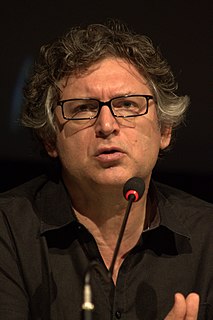A Quote by Epifanio de los Santos
( ...philosophy is more often the systematization of the prejudices of philosophers than the systematization of nature.) Distrust all generalizations: stick to the concrete.
Quote Topics
Related Quotes
The eternal is omniembracing and permeative; and the temporal is linear. This opens up a very high order of generalizations of generalizations. The truth could not be more omni-important, although it is often manifestly operative only as a linear identification of a special-case experience on a specialized subject.
That is what the highest criticism really is, the record of one's own soul. It is more fascinating than history, as it is concerned simply with oneself. It is more delightful than philosophy, as its subject is concrete and not abstract, real and not vague. It is the only civilized form of autobiography.
Socrates: So even our walks are dangerous here. But you seem to have avoided the most dangerous thing of all. Bertha: What's that? Socrates: Philosophy. Bertha: Oh, we have philosophers here. Socrates: Where are they? Bertha: In the philosophy department. Socrates: Philosophy is not department. Bertha: Well, we have philosophers. Socrates: Are they dangerous? Bertha: Of course not. Socrates: Then they are not true philosophers.
Fishermen, hunters, woodchoppers, and others, spending their lives in the fields and woods, in a peculiar sense a part of Nature themselves, are often in a more favorable mood for observing her, in the intervals of their pursuits, than philosophers or poets even, who approach her with expectation. She is not afraid to exhibit herself to them.
Philosophy used to be a field that had content, but then 'natural philosophy' became physics, and physics has only continued to make inroads. Every time there's a leap in physics, it encroaches on these areas that philosophers have carefully sequestered away to themselves, and so then you have this natural resentment on the part of philosophers.

































